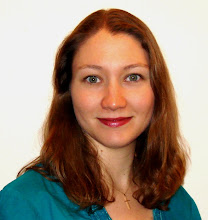"The preference for clarity via organization, I contend, weakens appropriation's rhetorical power." (59)Really? Organizing something to make it clearer makes the message weaker? I'm not sure I buy that. I could get on board with the idea that organization in a multimedia sense may not look the same as linear argumentation in writing, or even two-dimensional print products. In new media literacies, organization may require the use of time, or sound, or other organizing principles rather than being primarily spatial. But I'm convinced it still exists and is critically important. Take visual art, for example, where the principles of unity and variety work together in design.
I'm a fan of Lakhoff & Turner's More Than Cool Reason, and I like thinking about how language and metaphor shape thought patterns (and, of course, are shaped by them). With a quick read of Don's first paragraph, I got to thinking about the metaphor of composing. At what point does composing turn into composting, into decomposing? That is, does there come a point where a collection of stuff is just that, and it starts to collapse in on itself and degrade? That extended metaphor seems to connect to what we mentioned in class about collecting information vs. gaining understanding, together with Tom was saying about coherence: composting can render fertile material, but you have to put it in a garden and plant something (activities involving some planning and order) for it to grow anything.
Total Side Note: I also watched the Cut Up Method video, which made no sense the first time through because I didn't know anything about cut-ups or Burroughs (thank you, Wikipedia), and the first six parts of the DJ Spooky lecture for EGS. The latter was really interesting, and the part about the trains made me think of ancient heroic codes, where the goal was to gain fame to create immortality. My husband's rhetoric of religion class was talking about something similar today: a theorist arguing that the desire to join a collective/network is essentially the same thing -- a way of belonging to something bigger that will outlast you, to defeat mortality in some way. But what does the transitory nature of our new technologies and literacies do to that? After all, no matter how many friends you have on MySpace, that is so last year.
